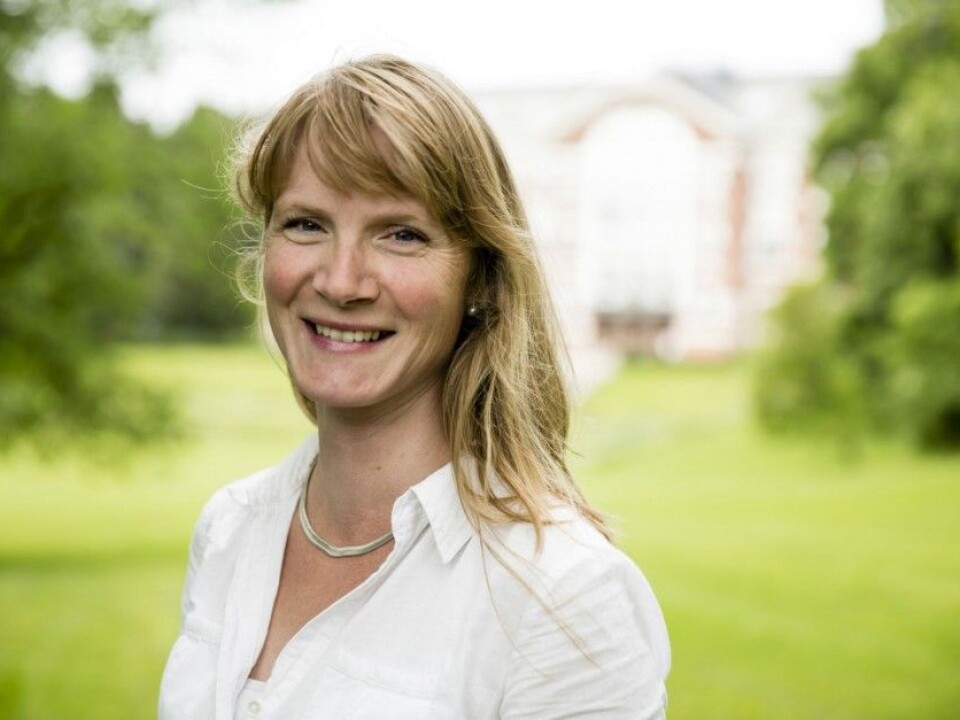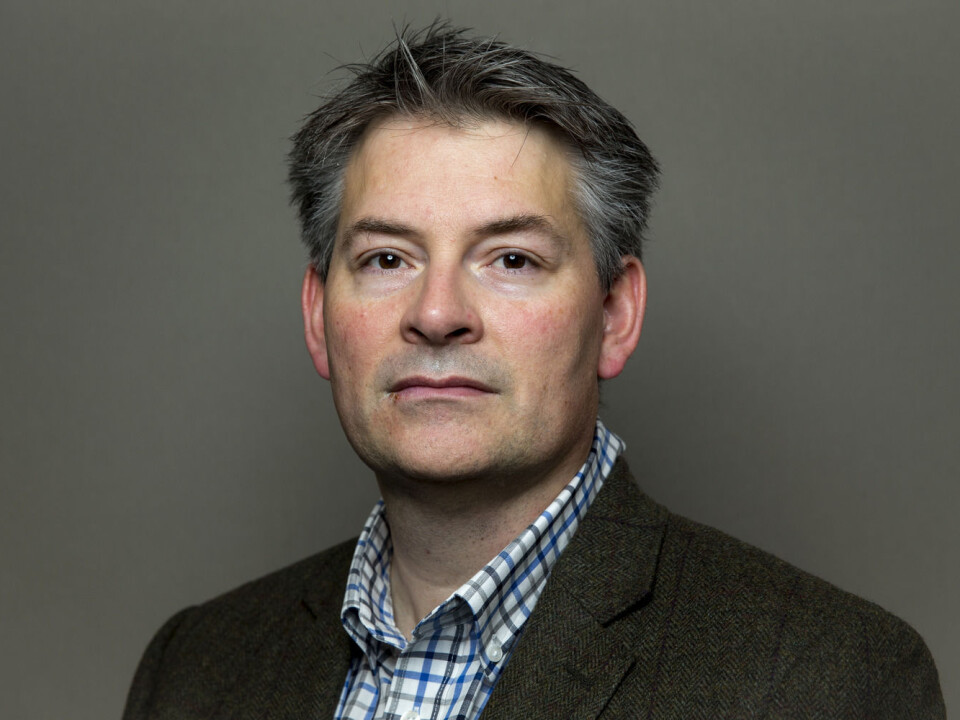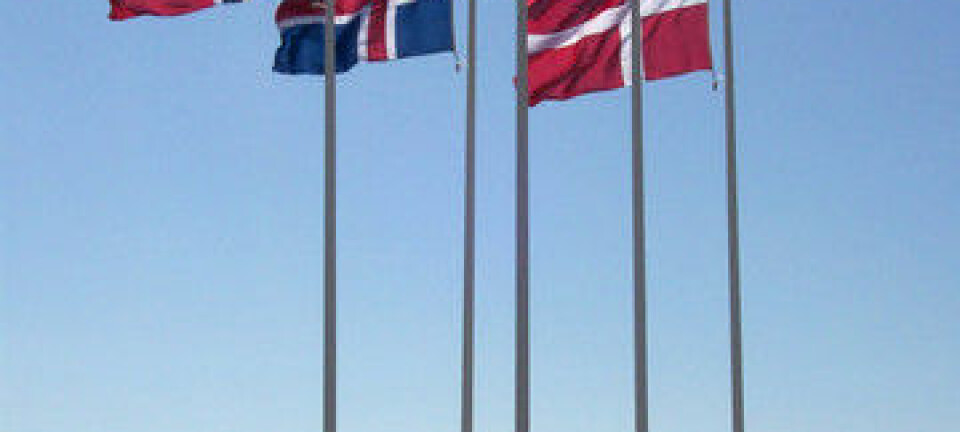An article from KILDEN Information and News About Gender Research in Norway
The annual award for gender balance in research will no longer be presented
The Norwegian Ministry of Education and Research has decided to end the seven-year-old tradition.
Denne artikkelen er over ti år gammel og kan inneholde utdatert informasjon.
The Gender Equality Award has been presented by the Norwegian Ministry of Education and Research every year since 2007. In addition to the recognition, the award has provided the winners with NOK 2 million to follow up their gender equality efforts. Recent winners include UiT The Arctic University of Norway, the Norwegian University of Life Sciences (NMBU), and Simula Research Laboratory, which won last year. But now the door is closing on a seven-year long tradition, and the Gender Equality Award for 2014 will not be presented.
Lack of national interest
According to the Ministry of Education and Research, one reason for discontinuing the award is a lack of national interest.
“If we take into account the decreasing interest in applying for the award, as well as the attention the award has already brought to gender equality activities at the institutions, we no longer find a reason to continue the award,” said State Secretary Bjørn Haugstad of the Ministry of Education and Research.
He confirms that the decision applies to the coming years as well, not only to 2014.
“The Gender Equality Award gave us an important boost”

“Right now I’m waiting to hear the ministry’s reasoning, but my first reaction was that the decision was strange. After all, the institutions have not achieved their gender equality objectives, and the award has helped to send an important signal and show that gender balance is a critical issue for the ministry,” says the Rector of the Norwegian University of Life Sciences (NMBU).
“The award has also been crucial for raising awareness within the sector. Of course, not everyone in an organization thinks this kind of work is important, so it has a huge impact when the message from the highest political level is that gender balance is an issue that deserves attention,” says Tveit.
“It was very meaningful for us that someone indicated our efforts in this area are taken seriously.”
NMBU’s academic profile with many traditionally male-dominated fields presented a challenge to gender balance and diversity at the university. One reason the university received the award was that it had made an outstanding effort in just a few years to systematize its gender equality activities with a basis in the institutional leadership.

“Gender equality work is difficult, long-term work that requires a never-say-die attitude, and when we received the award, we took full advantage of it to raise awareness within our institution,” explains Tveit.
“Not only did we receive valuable funding for additional measures, but the award also gave us an entirely new boost to our work.”
Gender equality does not happen by itself
Jarle Aarbakke, a former rector of UiT The Arctic University of Norway in Tromsø, is also concerned about the impact of the Gender Equality Award as a political signal, not to mention that the prize money makes a genuine difference.
“When we began our gender equality activities in 2002, we did so because it was the right thing to do rather than to win recognition or prize money, and this is how a university should operate,” he says.
“With that said, however, the Gender Equality Award has been extremely important for us. Not only is it a major recognition, but the amount of prize money is large enough that it can be used to implement concrete measures,” he states.
“And most importantly, the award sends an overall political signal that gender equality work is important.”
UiT is the only institution that has won the Gender Equality Award twice – in 2007 and 2011. The university has a successful track record of targeted gender equality efforts that have taken UiT from being the Norwegian university with the absolute lowest percentage of female professors in 2001 to the one with the most female professors in 2014. The former rector points out the importance of making gender equality efforts a leadership issue and says that political signals have a huge impact.
“If I have learned anything from my years as the rector of UiT, it’s how important politics is for teaching and research,” says Aarbakke, pointing out that he had not yet heard the ministry’s reasoning at the time of the interview.
“Change occurs depending on where the political focus is placed, and political signals and rewards work,” he states.
“Gender equality does not happen by itself, and it must have a political basis. The entire matter rests on getting more talent into all positions of importance. Many studies show that when there is gender equality, the results are better.”
More funding for the KIF Committee
State Secretary Bjørn Haugstad of the Ministry of Education and Research denies that the government is giving lower priority to gender equality and diversity efforts, even though the Gender Equality Award has been discontinued.
He notes that the Committee for Gender Balance and Diversity in Research (KIF Committee) has received a larger allocation, in part to implement its new mandate which has been expanded as from August this year to include diversity and ethnicity in addition to gender balance .
“We believe the KIF Committee is an excellent measure to promote gender equality, and this is why we have increased its funding from NOK 3 million to NOK 5 million. We also have the Research Council, which works in a highly targeted manner with gender equality and which has established the Programme on Gender Balance in Senior Positions and Research Management (BALANSE), among others,” says Haugstad.
Curt Rice, Chair of the KIF Committee, says he is pleased about the larger allocation from the ministry, but he gets mixed signals when the Gender Equality Award is discontinued.
“The Gender Equality Award is an important carrot in the system, and it is a chance to reward those who have done a good job. In addition, Norway has an outstanding reputation as a country that prioritizes gender equality and we are often held up as an international leader, so it’s unfortunate to lose such a clear expression of Norway’s commitment in this field,” says Rice.
Important internationally
We have previously written that the Gender Equality Award is regarded as one of the most important tangible expressions of Norway’s leading position in the field of gender equality. Rice confirms this as well.
“I’m often at meetings in Brussels in which Norway is identified as a country that prioritizes gender equality and this award is mentioned explicitly in that context,” he says.
“Unfortunately I will have to explain that the award has been discontinued. But then I will point out that luckily we have been allowed to prioritize other things,” says Rice.
“The larger allocation opens up new opportunities in other areas. For example, we can now focus more on the institutions that have not had gender equality on their agendas before. It’s too bad to lose this recognition for institutions that have achieved a lot, but now we can bring even more institutions on board,” he explains.
“Given the committee’s new mandate, the Gender Equality Award could have become a new, expanded diversity award and reward those who work hard in even more areas. Isn’t it unfortunate that the opportunity to do this has disappeared?”
“Nobody has said that opportunity has disappeared. The Gender Equality Award will no longer be presented, but now we will work with the expanded mandate and begin processes targeted towards the sector in that area,” says Rice.
“Of course we could decide to come back with a new proposal for a gender equality and diversity award. But the main issue here and now is that it’s unfortunate to lose the impact that the Gender Equality Award was able to make, but the larger allocation is positive and gives us new opportunities in other areas.”
Translated by: Connie Stultz
































